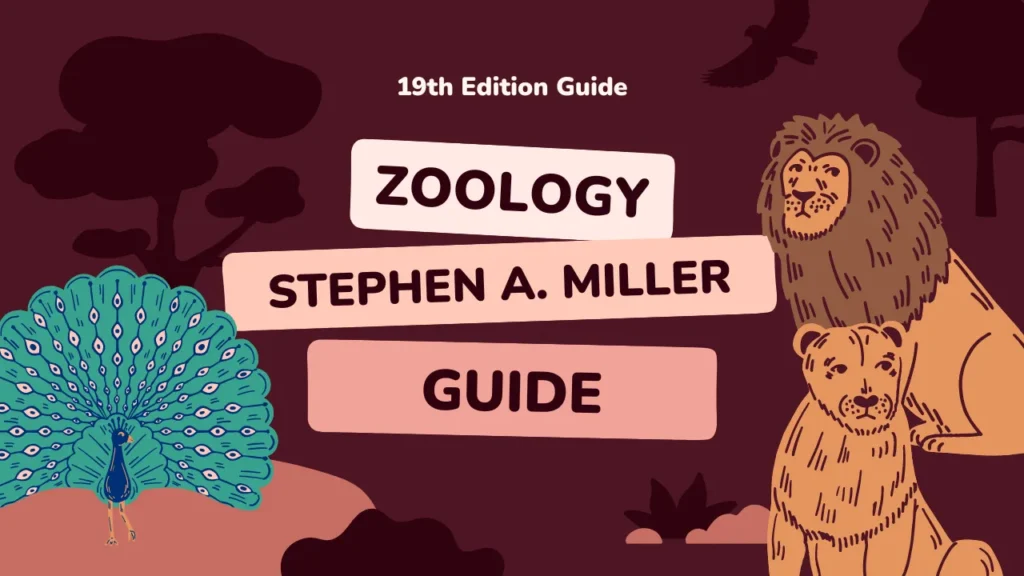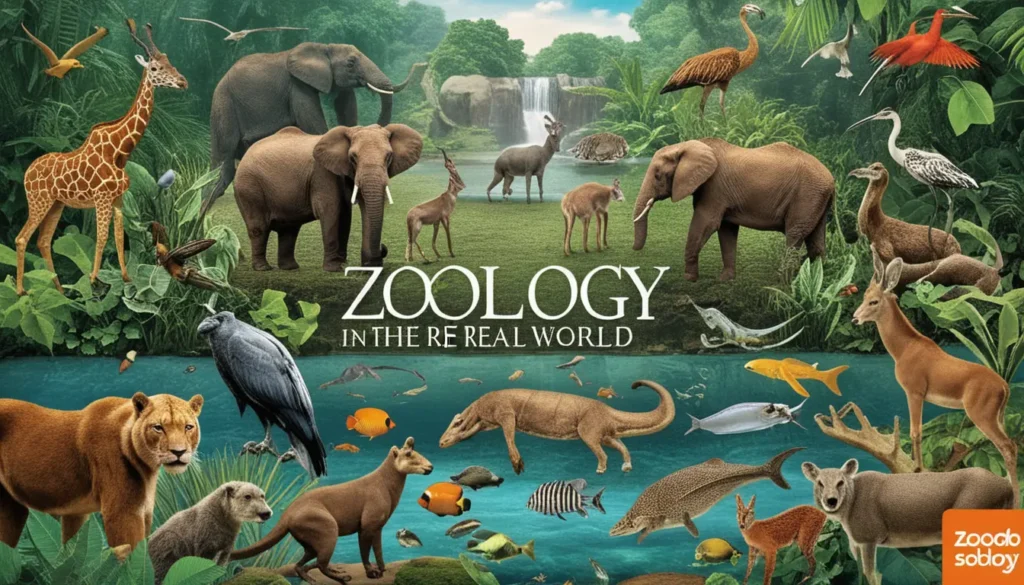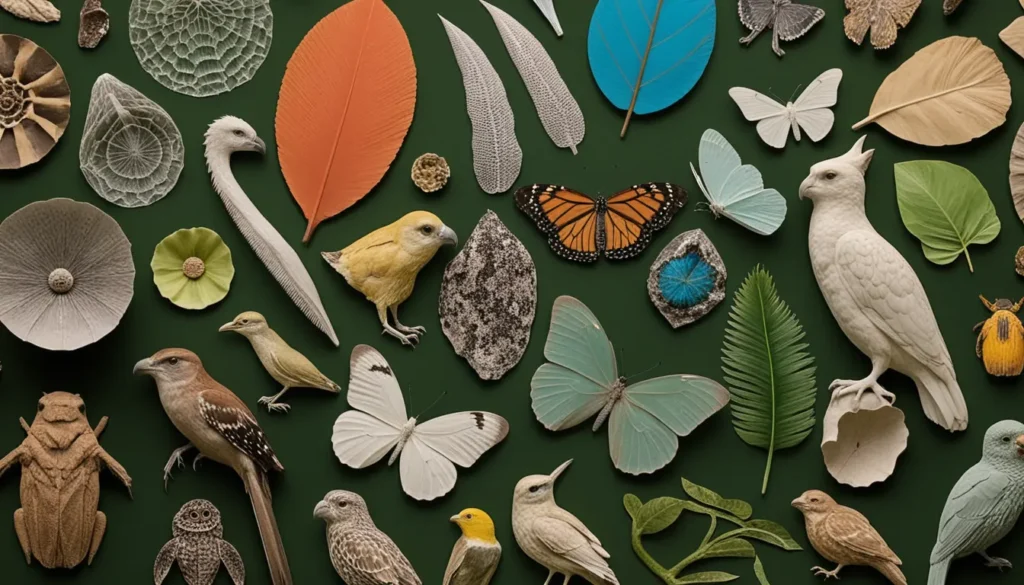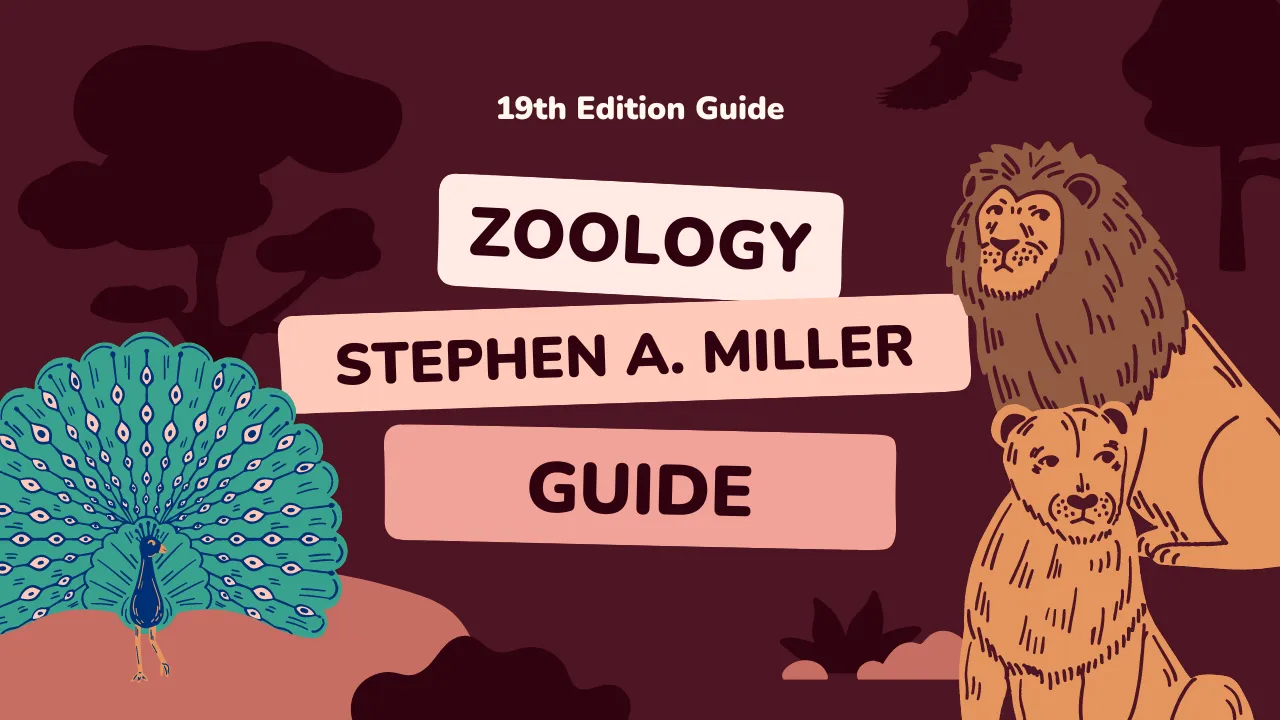Zoology jobs: Zoology Guide by Stephen A. Miller

Zoology jobs Are you captivated by the diverse and intricate world of animals? Do you dream of unraveling the mysteries of life on Earth? If so, you’ve come to the right place. This comprehensive zoology guide for students is your gateway to understanding the exciting field of animal science.
Zoology, the study of animals, is a cornerstone of biological sciences that offers endless opportunities for discovery and innovation. From the tiniest microorganisms to the largest mammals, zoologists explore the complexities of animal life, behavior, and ecosystems. This guide will equip you with the knowledge and tools you need to embark on your journey as a budding zoologist.
Also check Integrated Principles of Zoology, McGraw Hill, 9th Edition: A Comprehensive Review
In this extensive resource, we’ll cover:
- The fundamentals of zoology and its various branches
- Career prospects and the importance of zoological research
- Essential concepts, skills, and technologies in modern zoology
- Practical advice for excelling in your zoology studies
- Real-world applications of zoological knowledge
Whether you’re a high school student considering a career in animal science, a college freshman diving into biology, or simply an animal enthusiast looking to expand your understanding, this guide will provide you with valuable insights and direction.
Let’s begin our exploration of the captivating world of zoology!
1. What is Zoology?

Zoology is the branch of biology that focuses on the study of animals. This vast field encompasses everything from the microscopic structure of animal cells to the complex interactions within entire ecosystems. To truly understand zoology, let’s break it down further:
Definition and Scope
Zoology is derived from the Greek words “zoo” (animal) and “logos” (study). It involves:
- The study of animal structure, function, and behavior
- Investigation of animal evolution and classification
- Exploration of animal interactions with their environment and other species
Branches of Zoology
The field of zoology is incredibly diverse, with numerous specialized areas of study:
- Ethology: The study of animal behavior
- Physiology: Examination of animal body functions
- Embryology: Study of animal development from conception to birth
- Genetics: Investigation of heredity and genetic variation in animals
- Ecology: Study of animal interactions with their environment
- Paleozoology: Examination of extinct animal species through fossils
Historical Perspective
Zoology has a rich history dating back to ancient civilizations:
- Ancient Greece: Aristotle, often considered the father of zoology, wrote extensive works on animal classification and behavior.
- Renaissance: Naturalists like Conrad Gesner began systematic documentation of animal species.
- 19th Century: Charles Darwin’s theory of evolution revolutionized the field, providing a framework for understanding animal diversity and adaptation.
- 20th Century and Beyond: Advancements in genetics, molecular biology, and technology have greatly expanded our understanding of animal life.
2. Why Study Zoology?
Zoology isn’t just about satisfying curiosity—it’s a field with profound implications for science, the environment, and society. Here’s why studying zoology is so important:
Career Opportunities
A degree in zoology opens doors to a wide range of career paths:
- Wildlife biologist or conservationist
- Veterinarian or animal care specialist
- Environmental consultant
- Zoological park curator or researcher
- Marine biologist
- Entomologist
- Science educator or communicator
Scientific Importance
Zoological research contributes significantly to our understanding of life:
- Uncovering evolutionary relationships between species
- Discovering new species and documenting biodiversity
- Advancing medical research through animal models
- Developing new technologies inspired by animal adaptations (biomimicry)
Environmental Significance
Zoologists play a crucial role in environmental conservation:
- Monitoring endangered species and habitats
- Developing conservation strategies
- Assessing the impact of climate change on animal populations
- Advising on wildlife management policies
3. Key Concepts in Zoology
To excel in zoology, you’ll need to master several fundamental concepts:
Animal Classification
Understanding how animals are categorized is essential:
- Taxonomy: The science of naming, describing, and classifying organisms
- Binomial nomenclature: The two-part naming system for species (e.g., Homo sapiens)
- Phylogenetics: The study of evolutionary relationships between species
Evolution and Adaptation
Evolution is the cornerstone of modern biology:
- Natural selection: The process by which favorable traits become more common in populations over time
- Speciation: The formation of new and distinct species
- Convergent evolution: When unrelated species develop similar traits due to similar environmental pressures
Anatomy and Physiology
Understanding animal structure and function is crucial:
- Comparative anatomy: Studying similarities and differences in structure across species
- Organ systems: Respiratory, circulatory, digestive, nervous, etc.
- Homeostasis: The maintenance of stable internal conditions
Ecology and Behavior
Animals don’t exist in isolation—their interactions are key:
- Ecosystems: The complex relationships between organisms and their environment
- Food webs: The interconnected feeding relationships in an ecosystem
- Animal behavior: Instincts, learned behaviors, and social structures
4. Essential Skills for Zoology Students
Success in zoology requires a diverse skill set:
Observation and Data Collection
- Developing keen observational skills
- Designing and implementing field studies
- Maintaining accurate and detailed records
Laboratory Techniques
- Microscopy and specimen preparation
- DNA extraction and analysis
- Animal handling and care
Statistical Analysis
- Understanding experimental design
- Data interpretation and visualization
- Use of statistical software (e.g., R, SPSS)
Scientific Writing
- Writing research papers and reports
- Preparing grant proposals
- Communicating findings to both scientific and general audiences
5. Tools and Technologies in Modern Zoology
Modern zoology utilizes cutting-edge technologies:
Microscopy
- Light microscopy for cellular studies
- Electron microscopy for ultra-fine structural details
- Confocal microscopy for 3D imaging of tissues
DNA Sequencing
- Next-generation sequencing for rapid genome analysis
- DNA barcoding for species identification
- Environmental DNA (eDNA) sampling for biodiversity assessment
Remote Sensing and Tracking
- GPS collars for tracking animal movements
- Satellite imagery for habitat mapping
- Acoustic monitoring for marine and terrestrial species
Computational Biology
- Bioinformatics for analyzing large datasets
- Modeling of population dynamics and ecosystems
- Machine learning applications in species identification
6. Fieldwork and Research Methods
Fieldwork is a crucial component of zoological research:
Designing Experiments
- Formulating testable hypotheses
- Selecting appropriate methodologies
- Controlling for variables
Ethical Considerations
- Animal welfare in research settings
- Minimizing environmental impact during field studies
- Obtaining necessary permits and approvals
Data Collection Techniques
- Capture-mark-recapture for population studies
- Behavioral observation protocols
- Sampling techniques for different habitats (aquatic, terrestrial, arboreal)
Safety in the Field
- Risk assessment and management
- First aid and emergency procedures
- Proper use of field equipment and protective gear
7. Specializations within Zoology
Zoology offers numerous areas of specialization:
Marine Biology
- Study of ocean ecosystems and marine life
- Focus on conservation of marine habitats
- Research on topics like coral reef ecology and deep-sea organisms
Entomology
- The study of insects
- Crucial for understanding pest control and pollination
- Contributions to fields like forensic science and biomimicry
Wildlife Biology
- Focus on wild animal populations and their habitats
- Conservation of endangered species
- Management of wildlife in parks and protected areas
Conservation Biology
- Preservation of biodiversity and ecosystems
- Development of sustainable conservation strategies
- Integration of social, economic, and biological factors in conservation
8. Zoology in the Real World

Zoological knowledge has wide-ranging applications:
Conservation Efforts
- Breeding programs for endangered species
- Habitat restoration projects
- Policy development for wildlife protection
Medical Research
- Animal models for studying human diseases
- Development of new drugs and treatments
- Understanding zoonotic diseases and their prevention
Agricultural Applications
- Pest control strategies
- Improving livestock health and productivity
- Pollination management for crop production
Environmental Management
- Assessing ecosystem health
- Monitoring the impacts of pollution and climate change
- Developing sustainable resource management practices
9. How to Excel in Zoology Studies
Tips for success in your zoological education:
Study Tips and Strategies
- Develop strong foundational knowledge in biology and chemistry
- Practice scientific drawing and observation skills
- Stay current with zoological literature and research
Building a Professional Network
- Attend scientific conferences and workshops
- Join student chapters of professional organizations
- Participate in online forums and social media groups for zoologists
Internships and Research Opportunities
- Seek out research assistant positions in university labs
- Apply for internships at zoos, wildlife sanctuaries, or research institutions
- Participate in field research expeditions
Continuing Education
- Consider graduate studies for specialized research
- Attend workshops to learn new techniques and technologies
- Pursue certifications relevant to your area of interest
10. Resources for Zoology Students

Expand your knowledge with these valuable resources:
Recommended Textbooks
- “Integrated Principles of Zoology” by Hickman et al.
- “Animal Physiology” by Hill et al.
- “Behavioral Ecology” by Davies et al.
Online Courses and Tutorials
- Coursera: “Animal Behavior and Welfare” by The University of Edinburgh
- edX: “Introduction to Animal Behavior” by Wageningen University
- Khan Academy: Biology courses covering relevant topics
Professional Organizations
- The Society for Integrative and Comparative Biology (SICB)
- The Zoological Society of London (ZSL)
- The Wildlife Society (TWS)
Journals and Publications
- Journal of Zoology
- Animal Behaviour
- Conservation Biology
- Nature and Science for broader scientific discoveries
Conclusion
As we conclude this comprehensive zoology guide for students, it’s clear that the field of animal science offers many opportunities for discovery, innovation, and impact. From unraveling the mysteries of animal behavior to developing crucial conservation strategies, zoologists play a vital role in advancing our understanding of life on Earth.
The future of zoology is bright, with emerging technologies and interdisciplinary approaches opening new avenues for research and application. As climate change and habitat loss continue to threaten global biodiversity, the work of zoologists becomes increasingly important in preserving and protecting the natural world.
For aspiring zoologists, the journey ahead is both challenging and rewarding. By mastering the fundamental concepts, developing essential skills, and staying curious about the animal kingdom, you can contribute to this fascinating field and make a real difference in the world.
Whether you’re drawn to the microscopic world of cellular biology, the vast expanses of marine ecosystems, or the complex behaviors of social animals, there’s a place for you in zoology. So take the next step—dive deeper into your interests, seek hands-on experiences, and connect with the zoological community.
Remember, every great zoologist started as a student with a passion for animals. Your journey into animal science begins now. What amazing discoveries will you make?
FAQs
Zoology Jobs
Q1: What career opportunities are available for zoology graduates? A1: Zoology graduates can pursue various careers, including:
- Wildlife biologist
- Zookeeper
- Environmental consultant
- Conservation officer
- Marine biologist
- Veterinary technician
- Research scientist
- Ecologist
- Science educator
Q2: What is the average salary for a zoologist? A2: The average salary for zoologists in the United States is around $66,000 per year, but this can vary significantly based on experience, location, and specific role.
Q3: Is the job market competitive for zoologists? A3: Yes, the job market for zoologists can be competitive, especially for desirable positions in zoos, wildlife preserves, and research institutions. Advanced degrees and specialized skills can improve job prospects.
Zoology Major
Q4: What subjects are typically covered in a zoology major? A4: A zoology major typically covers:
- Animal anatomy and physiology
- Ecology and evolution
- Genetics
- Animal behavior
- Cell biology
- Chemistry and biochemistry
- Statistics and research methods
Q5: Is a zoology degree different from a biology degree? A5: While there’s overlap, a zoology degree focuses specifically on animals, whereas a biology degree covers all living organisms. Zoology degrees often include more specialized courses on animal biology and behavior.
Q6: What skills do I need to succeed as a zoology major? A6: Key skills for zoology majors include:
- Strong observational skills
- Analytical thinking
- Data analysis and interpretation
- Scientific writing
- Fieldwork techniques
- Laboratory skills
- Patience and attention to detail
Online Zoology Degree
Q7: Can I earn a zoology degree completely online? A7: While some universities offer online zoology courses, it’s rare to find a fully online zoology degree program due to the hands-on nature of the field. However, you can often find hybrid programs that combine online coursework with in-person lab and fieldwork components.
Q8: What are some reputable institutions offering online zoology courses? A8: Some institutions offering online zoology-related courses include:
- Oregon State University (Ecampus)
- University of New England
- Southern New Hampshire University
- Arizona State University (online biology program with zoology focus)
Q9: Are online zoology courses as valuable as in-person courses? A9: Online courses can provide valuable theoretical knowledge, but in-person courses offer crucial hands-on experience. Employers may value degrees with significant in-person components more highly, especially for roles requiring practical skills.
Zoology Class Eggs
Q10: Why do zoology classes often involve studying eggs? A10: Eggs are studied in zoology classes because they provide insights into:
- Animal reproduction and development
- Evolutionary adaptations
- Biodiversity (egg structure varies greatly among species)
- Embryology and life cycles
Q11: What types of eggs are commonly studied in zoology classes? A11: Common types of eggs studied include:
- Bird eggs (often chicken eggs for ease of access)
- Reptile eggs (such as turtle or lizard eggs)
- Amphibian eggs (like frog or salamander eggs)
- Fish eggs
- Insect eggs
Q12: What experiments or observations are typically done with eggs in zoology classes? A12: Common egg-related activities in zoology classes include:
- Observing embryo development in fertilized eggs
- Comparing egg structures across different species
- Studying the effects of environmental factors on egg development
- Examining egg adaptations for different habitats
Best Zoology Colleges
Q13: What are some of the top colleges for zoology in the United States? A13: Some highly regarded colleges for zoology include:
- University of California, Davis
- Cornell University
- University of Michigan
- University of Wisconsin-Madison
- Duke University
- Texas A&M University
- Colorado State University
Q14: What should I look for when choosing a college for zoology? A14: Consider the following factors:
- Quality and breadth of zoology coursework
- Research opportunities
- Faculty expertise
- Access to field stations or natural areas
- Internship programs
- Laboratory facilities
- Connections to zoos, wildlife centers, or marine institutes
Q15: Do I need to attend a specialized zoology program, or can I study at a college with a strong general biology program? A15: While specialized zoology programs can offer more focused coursework, many excellent zoologists graduate from strong general biology programs. The key is to seek out animal-focused courses, research opportunities, and internships within the program.














Post Comment